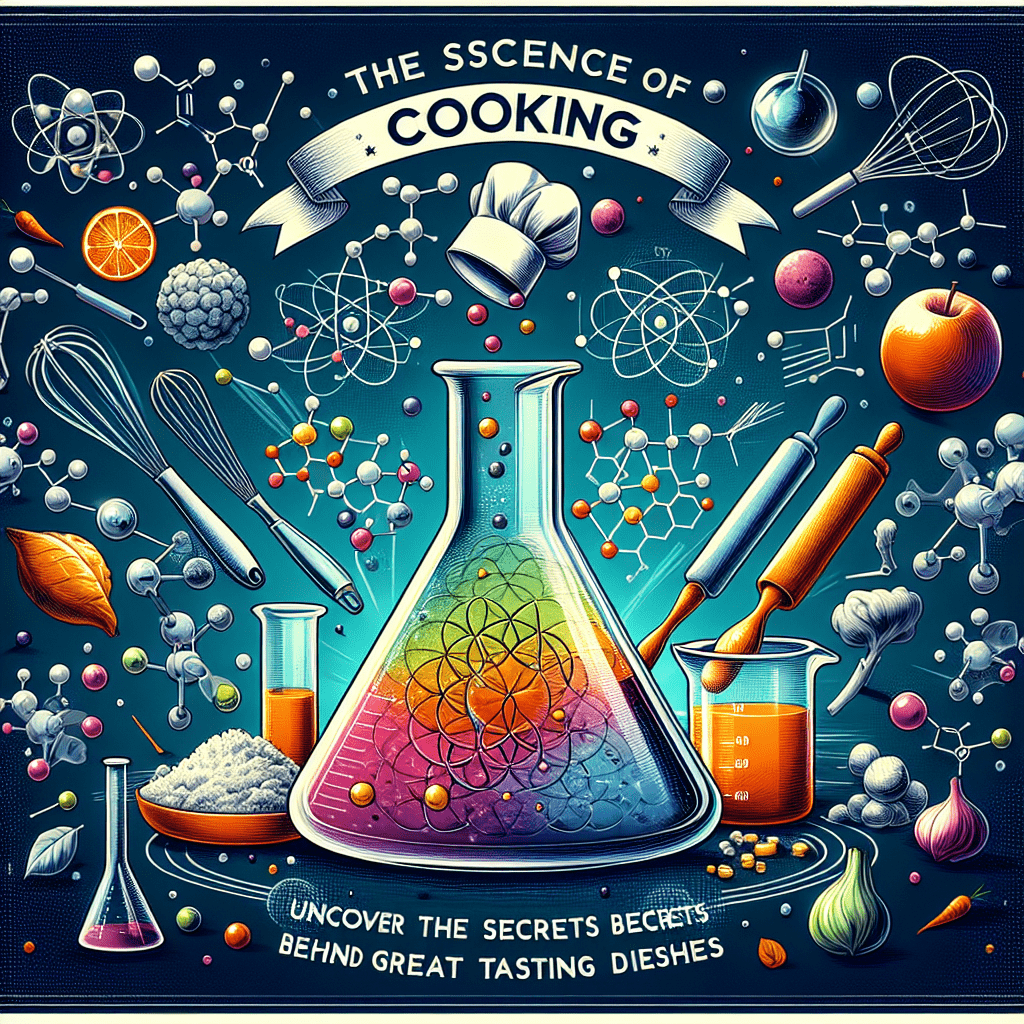The Science of Cooking: Uncover the Secrets Behind Great Tasting Dishes
When it comes to cooking, there is a lot more going on than meets the eye. Behind every delicious dish is a complex combination of ingredients, techniques, and chemical reactions that work together to create flavors and textures that delight our taste buds. In this article, we will explore the science behind cooking and uncover the secrets that chefs use to create great tasting dishes.
The Role of Heat
One of the most fundamental principles of cooking is the role of heat in transforming raw ingredients into delicious meals. When ingredients are exposed to heat, complex chemical reactions occur that change their structure and create new flavors. For example, when meat is cooked, the proteins denature and brown, creating a rich, savory flavor. Similarly, when sugars are heated, they caramelize, producing a sweet and nutty flavor.
The Maillard Reaction
One of the key chemical reactions that occurs when cooking food is the Maillard reaction. This reaction occurs when sugars and amino acids in food are exposed to heat, resulting in the browning and development of complex flavors. The Maillard reaction is responsible for the rich, savory flavors in grilled meat, toasted bread, and roasted vegetables.
Emulsification
Another important concept in cooking is emulsification, which is the process of combining two liquids that do not normally mix, such as oil and water. Emulsions are essential for creating creamy sauces, dressings, and mayonnaise, as they help to stabilize the mixture and prevent separation. Emulsions rely on the use of an emulsifier, such as egg yolks or mustard, to hold the two liquids together.
Temperature Control
Controlling temperature is crucial in cooking to ensure that ingredients are cooked evenly and to the desired level of doneness. Different cooking methods, such as grilling, roasting, and steaming, require precise temperature control to achieve the best results. Using a thermometer to monitor the temperature of your food can help you avoid overcooking or undercooking your dishes.
Flavor Pairing
Creating great tasting dishes is not just about cooking techniques, but also about understanding flavor pairing. Certain ingredients naturally complement each other, while others create interesting contrasts. For example, the acidity of citrus fruits can balance out the richness of fatty meats, while the sweetness of honey can enhance the spiciness of chili peppers. Experimenting with different flavor combinations can help you create unique and delicious dishes.
Conclusion
Cooking is as much an art as it is a science. By understanding the chemical reactions and techniques that occur during cooking, you can elevate your culinary skills and create great tasting dishes that will impress your friends and family. Experimenting with different ingredients, flavors, and cooking methods can help you discover new and exciting ways to enjoy food. So next time you step into the kitchen, remember that cooking is not just about following a recipe – it’s about unlocking the secrets of flavor and creating dishes that delight the senses.
FAQs
Q: What is the best way to sear a steak?
A: The best way to sear a steak is to preheat a cast iron skillet over high heat until it is smoking hot. Season your steak with salt and pepper, then add it to the skillet and cook for 2-3 minutes per side until a brown crust forms.
Q: How can I make my sauces thicker?
A: To thicken sauces, you can use a roux (a mixture of flour and fat), a cornstarch slurry, or reduce the sauce over low heat until it reaches the desired consistency.
Q: What is the difference between baking soda and baking powder?
A: Baking soda is a leavening agent that requires an acid, such as buttermilk or vinegar, to activate. Baking powder, on the other hand, contains both an acid and a base, so it can be used in recipes that do not contain additional acidic ingredients.
TIP: Experiment with Different Cooking Techniques
Don’t be afraid to try new cooking techniques, such as sous vide, smoking, or fermenting. These methods can help you discover new flavors and textures in your dishes and take your cooking to the next level.
#Science #Cooking #Uncover #Secrets #Great #Tasting #Dishes

